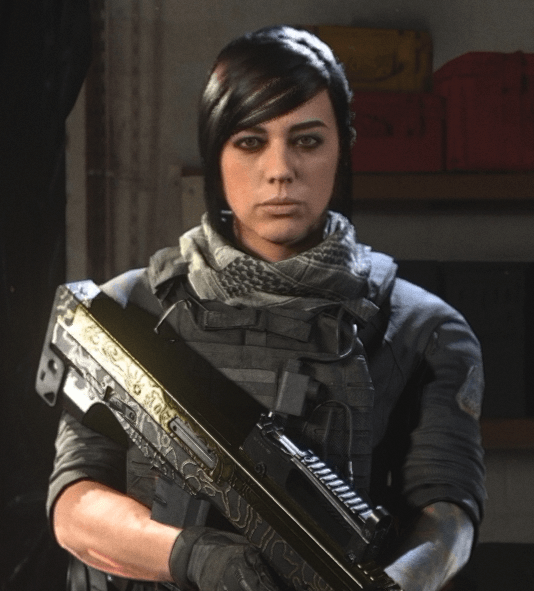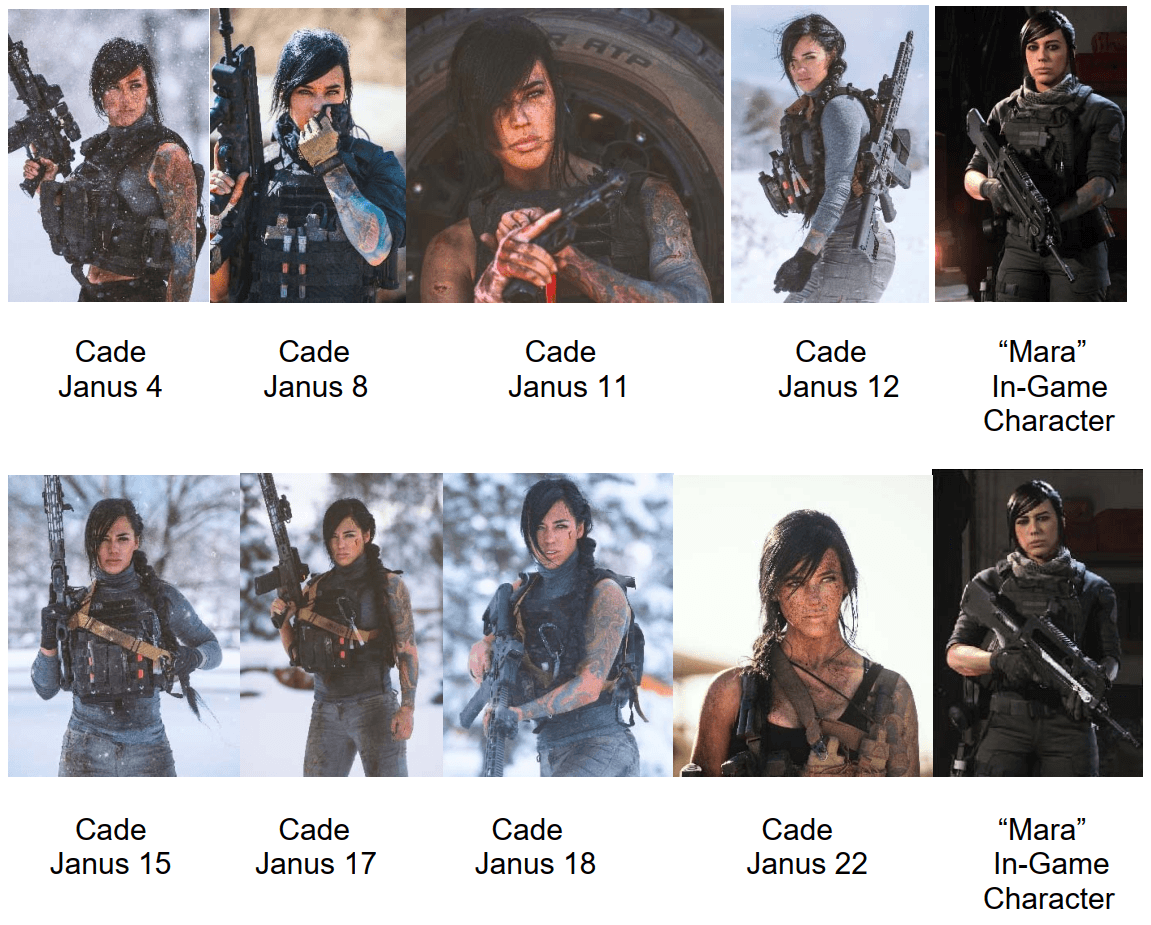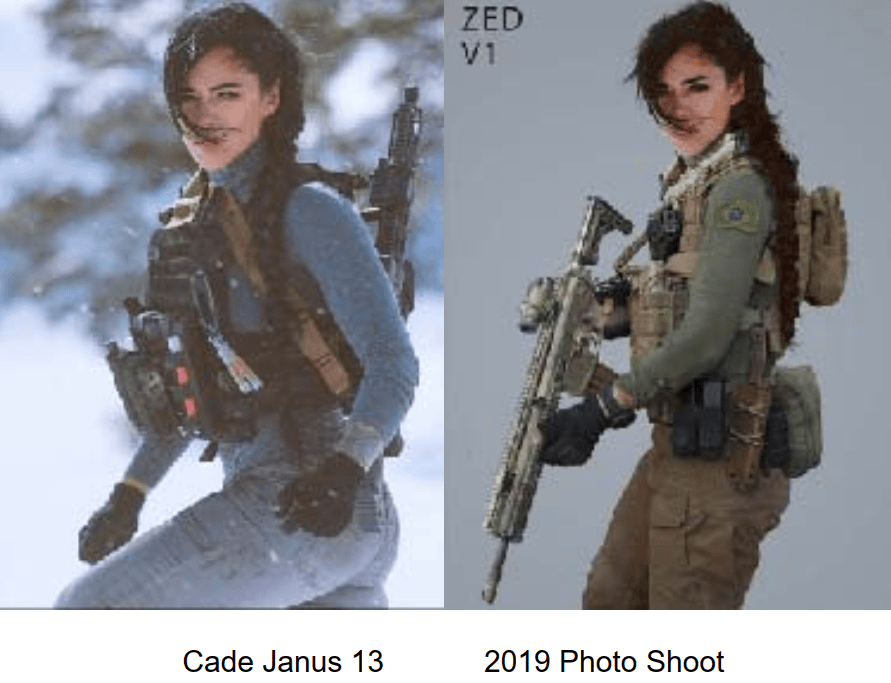Since 2003, publisher Activision has teamed up with various developers to release Call of Duty games on various platforms. Its longest standing partner is California-based Infinity Ward, whose team was responsible for the 2019 release Call of Duty: Modern Warfare.
Available for Windows, PS4 and Xbox One, Modern Warfare received plenty of praise but not everyone is happy with the end result.
According to a lawsuit filed in a Texas court yesterday, Activision, Infinity Ward (IW), and Major League Gaming Corp (MLG) committed copyright infringement after copying and then passing off a character design as their own.
“Deliberate, Intentional and Comprehensive Copying”
Plaintiff Clayton Haugen describes himself as a writer, photographer and videographer from North Carolina. He is also the copyright owner of two literary works and 22 photographs of a character he named ‘Cade Janus’, the central figure in his story ‘November Renaissance’, which he hoped could be made into a film.
In 2017, Haugen says he hired ‘talent’ (actress, cosplayer, twitch streamer Alex Zedra) to portray ‘Cade Janus’ and took a series of photographs, which together with his story were presented to film studios. In a further promotional effort, the photographs were also published on Instagram and in a series of calendars. It appears that the defendants also became of Haugen’s work.
As part of their hunt for a “strong, skilled female fighter”, the defendant videogame companies (through contractors) allegedly hired the same ‘talent’ (Zedra) and asked her to obtain the same clothing and gear used in the original ‘Cade Janus’ photoshoot from Haugen himself.
The companies also hired the same makeup artist, who was instructed to copy the makeup and hair as depicted in the original photographs, “even using the same hair extension piece.” Haugen further alleges that his original photographs were posted to “the wall of the studio” and used as a framing guide before the model was 3D-scanned.
“To conceal their planned infringement of Haugen’s Cade Janus Photographs and his Cade Janus character, Defendants required the talent and the makeup professional to sign Non-Disclosure Agreements,” the complaint notes.
“The resulting photographs were intended to be, and were, copies of Haugen’s Cade Janus Photographs,” the lawsuit reads.
Infringing Photographs Used to Market Modern Warfare
According to Haugen, the resulting photographs and three-dimensional images were not only used to develop the in-game character ‘Mara’ but also deployed as key assets in Modern Warfare’s marketing campaign.
“With this infringing female character as the centerpiece of an advertising campaign for the first time in the Call of Duty series, [defendants] shattered all previous sales and games-played records. Call of Duty: Modern Warfare has generated more than a billion dollars in revenues,” the lawsuit reads.
Copyright Infringement Claims
As the copyright owner of the works in question, Haugen explains that he has the exclusive right to make copies and derivatives, and the exclusive right of distribution. The lawsuit reveals that while Haugen had copyrights registered for his story back in 2012 and 2013, the Copyright Office only registered his photographs on December 21, 2020, presumably so he could file this complaint.
Haugen says that the character ‘Mara’ is “substantially similar” to his creation ‘Cade Janus’ and provides samples to show that his original photographs were copied during a Modern Warfare photoshoot in 2019.
As a result, Haugen claims that Activision, Infinity Ward and Major League Gaming have infringed and continue to infringe his rights. In the alternative, Activision Blizzard has or has had a financial interest in the infringement of Haugen’s copyrights so can be held vicariously liable for the infringements of the trio.
In a further alternative, the defendants knew that the other defendants and their contractors were infringing and induced and/or encouraged that behavior, making them liable for contributory infringement of Haugen’s rights.
“Haugen is entitled to recover all monetary remedies from Defendants’ infringement, including all of their profits attributable to their infringements, to the full extent permitted by 17 U.S.C. § 504,” the complaint concludes, demanding a trial by jury.
The complaint can be found here (pdf)









